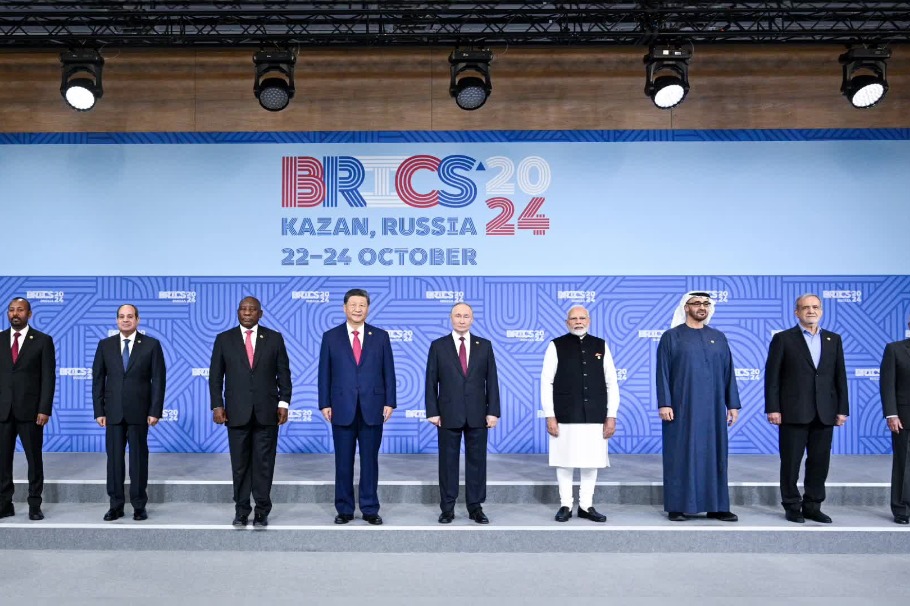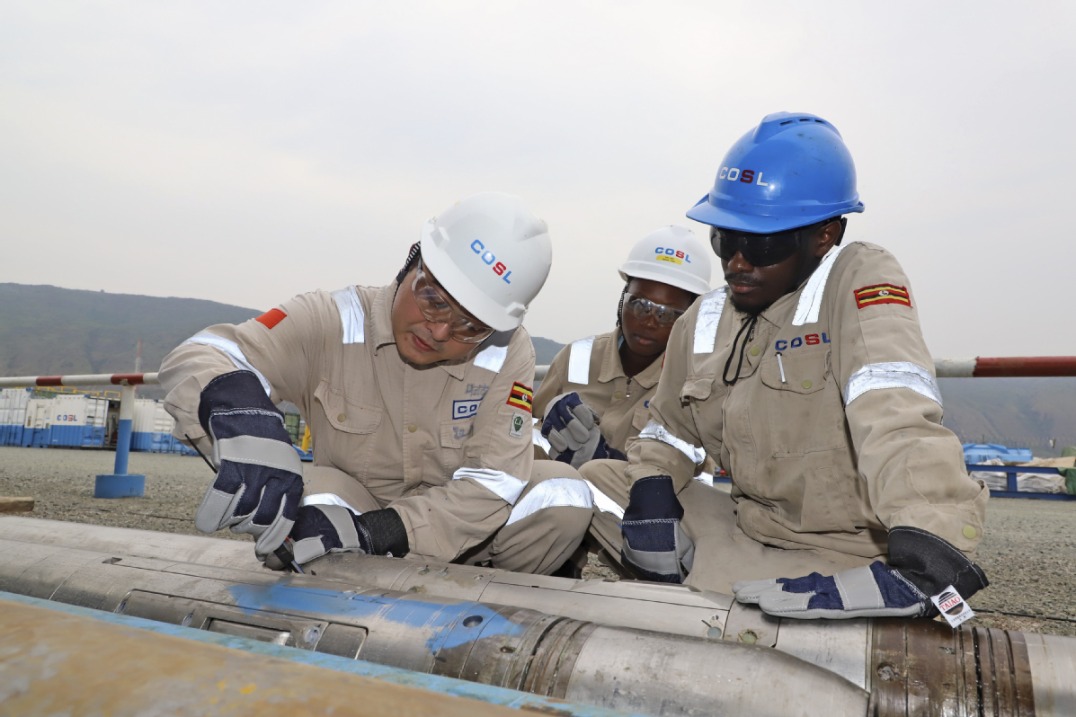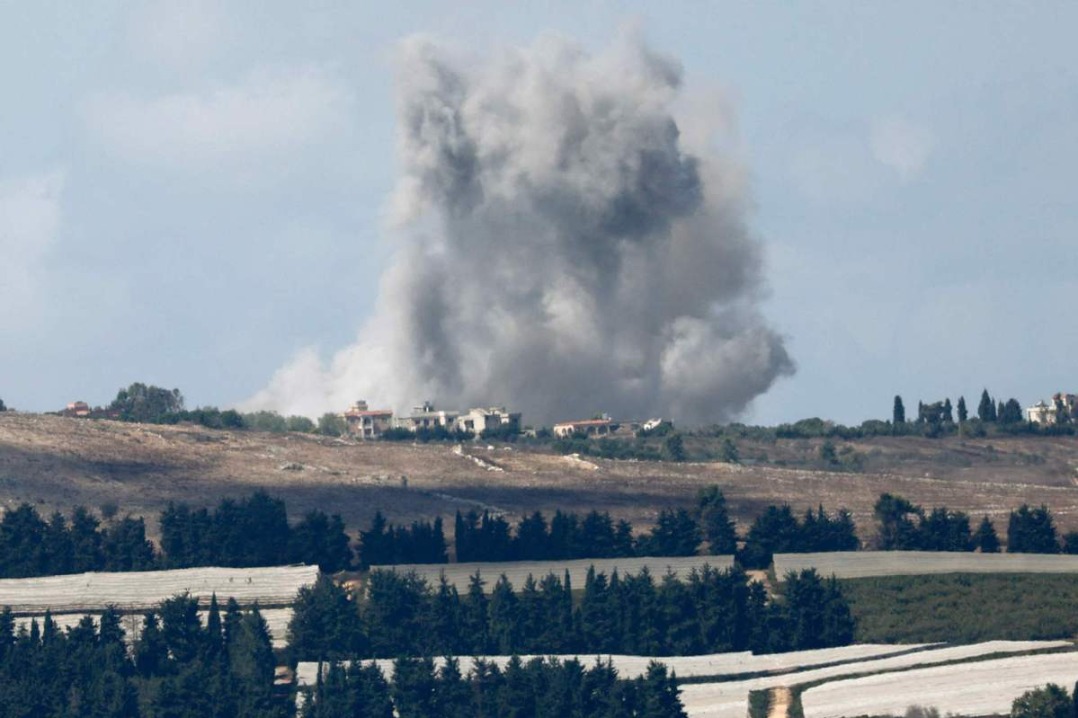Resolving conflicts in Middle East


The just-concluded 16th BRICS Summit in Kazan, Russia, saw the deepening of global cooperation, with China's Middle East policy advancing regional stability as part of its broader foreign policy to support development across the Global South.
The Middle East has been of great importance to China, and is high on the country's foreign policy agenda. It is one of the most geopolitically important regions in the world. That China pays great attention to the Middle East is evident from the nature of China's political, economic, commercial, cultural and technological cooperation with the countries of the region.
China aims to contribute to the stability of the Middle East by deepening economic cooperation with the region, which hopefully may serve as a counterbalance to the ongoing conflicts, and even help end them.
China's economic cooperation with other countries and regions is based on the Five Principles of Peaceful Coexistence including mutual benefit, non-interference in the internal affairs of other countries, as well as the principle of resolving crises and political problems through political means. China's proposal of and efforts aimed at building a community with a shared future for mankind prompt it to use every possible opportunity to mediate peace between warring parties in different regions and help resolve conflicts and disputes through negotiations. China has also begun making joint efforts to deal with some political and security crises and issues.
"Pragmatic cooperation" has indeed become a cornerstone of China's foreign policy, shaping its approach to international relations, particularly in the Middle East. The pragmatic cooperation framework underpins various Chinese initiatives, including the Belt and Road Initiative, which is aimed at improving connectivity and boosting economic development across regions by building and/or revitalizing infrastructure facilities and trade routes that connect China with the Middle East and other regions.
China is also strengthening collaboration with other countries on technology transfer to boost local industries, and bolstering partnerships in oil and gas to ensure the smooth supply of energy. But the most important factor that defines China's role in the Middle East and other regions is its efforts to develop a just and fairer world order. China's discourse is centered on justice, especially in the case of the Palestinian people.
China advocates for the rights of the Palestinian people, positioning itself as a supporter of their cause against perceived injustices. Its stance aligns with its broader narrative of ensuring that all countries' sovereignty and territorial integrity are respected.
Therefore, China's approach is one of striking a balance between pragmatism and principles. While safeguarding its economic and strategic interests, China seeks to uphold the values of justice and equality, and safeguard human rights. The commitment to resolve crises, especially in the Middle East, is one of the most prominent components of China's foreign policy.
While trying to resolve the crises in the Middle East, China's moves are based on several key determinants, including maintaining stability, balancing relations and using diplomacy to address problems. For long China has been calling for dialogue to help resolve the conflicts in the Middle East, during which it has urged all parties to exercise restraint and avoid taking actions that could further escalate tensions.
The fact that China has been making efforts to restore peace in the Middle East became absolutely clear when it successfully brokered a rapprochement between Saudi Arabia and Iran in March 2023. It was the first real China-assisted mediation between two countries in the Middle East.
Another peace initiative that China undertook was bringing together 14 Palestinian factions, which signed the Beijing Declaration in July and vowed to bridge their differences, and work together to end the Israel-Palestine conflict and establish an independent Palestinian state.
While playing a bigger role in safeguarding global security, China is trying to resolve the ongoing conflict in Sudan. It has been urging the warring parties to agree to a cease-fire and hold dialogue to finds ways of restoring peace in the region. In particular, it has urged the international community to extend support to Sudan, prevent foreign interference in Sudan's internal affairs and lift sanctions on it.
China's efforts in the Middle East have been welcomed by the countries of the region, because they are aimed at resolving differences through dialogue.
But there are still challenges that need to be addressed, including the political challenges the Arab world is facing because of the escalation of the Israel-Palestine conflict. In conclusion, China's pragmatic cooperation strategy underscores its commitment to fostering meaningful partnerships in the Middle East while simultaneously advocating for justice in critical issues.
The author is an associate professor of Political Science at Suez Canal University, Egypt.
The views don't necessarily reflect those of China Daily.
If you have a specific expertise, or would like to share your thought about our stories, then send us your writings at opinion@chinadaily.com.cn, and comment@chinadaily.com.cn.


































